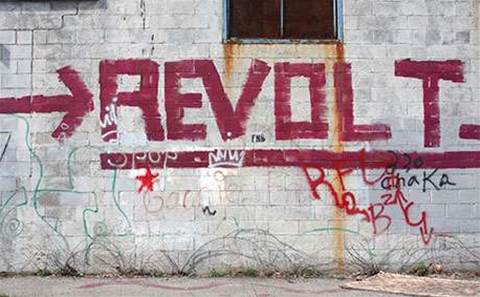Some top shareholders of IBM, disappointed by 11 straight quarters of falling revenues, are seeking help from activist investors to shake up the company, but have been turned down by both Bill Ackman's Pershing Square and Jeffrey Ubben's ValueAct, according to people with knowledge of the matter.
IBM is concerned about a possible attack by prominent activist hedge funds, and is working with two investment banks to formulate a defence plan, according to the people, who declined to be identified.
When asked for comment, IBM said: "IBM is continuing to execute on our strategy - making investments in growth areas such as analytics and cloud, reinventing our core franchises, and returning capital to shareholders. We are managing the company for the long term."
The storied American technology giant, worth $157 billion today, has struggled to transform itself from a low-margin hardware maker into a cloud-based software and services company.
When Virginia Rometty took over as chief executive at the start of 2012, Wall Street was hopeful that she would be able to kickstart growth. Analysts praised the former systems engineer for her strategic thinking in guiding IBM's acquisition of PricewaterhouseCoopers Coopers Consulting in 2002.
As revenues continued to decline year on year, however, some IBM investors began to lose confidence management, according to people familiar with the matter. Last year, IBM withdrew its long-term operating earnings target for 2015, and shares of Big Blue are now down about 25 percent from a March 2013 high.
Some IBM shareholders are trying to persuade prominent activists to build positions in the company and come up with ways to boost value, people familiar with the matter said.
Pershing Square and ValueAct Capital both looked at IBM in recent months, but passed on making a move, the people said. A spokesman for Pershing Square declined to comment. ValueAct did not immediately respond to a request for comment.
Part of the activist funds' concern was that IBM, whose stock is trading at around $159, is too expensive and the company's structural problems could not be fixed easily, according to several sources.
Another reason, the sources said, is that some investors feel Rometty is doing a good job coping with a tough situation, so she does not fit the role of an underperforming CEO that many activists look for when they make a move.
Next: Turning the ship








.jpg&h=142&w=230&c=1&s=1)
_(27).jpg&h=142&w=230&c=1&s=1)




.jpg&w=100&c=1&s=0)











